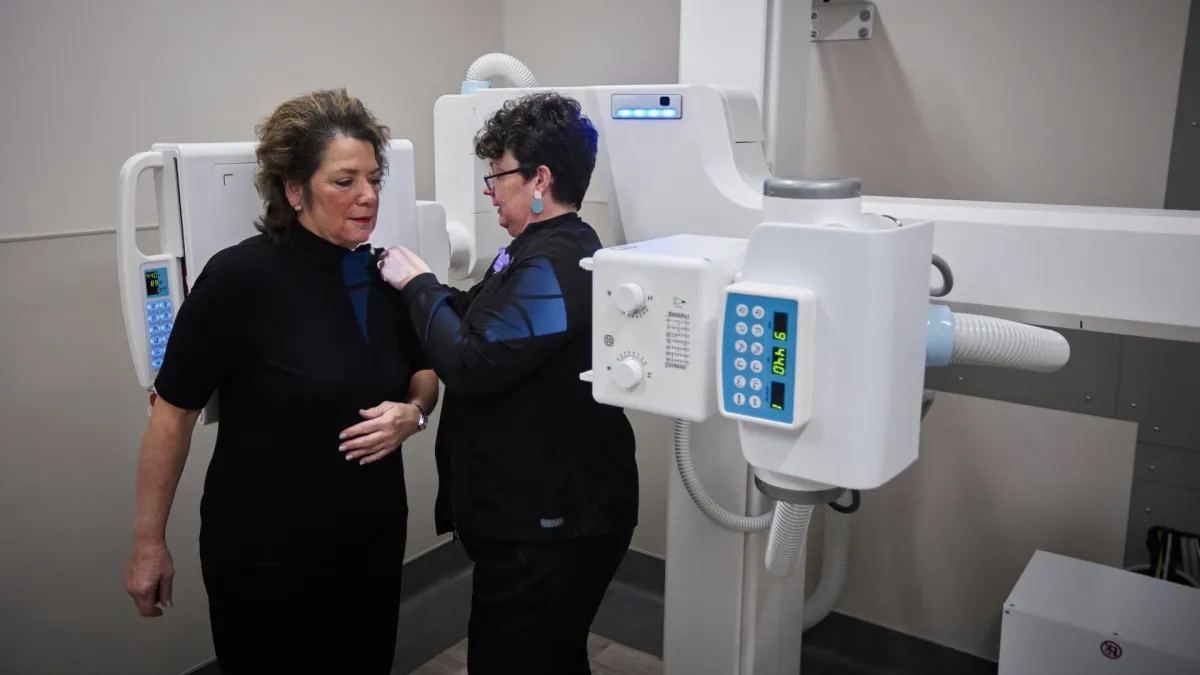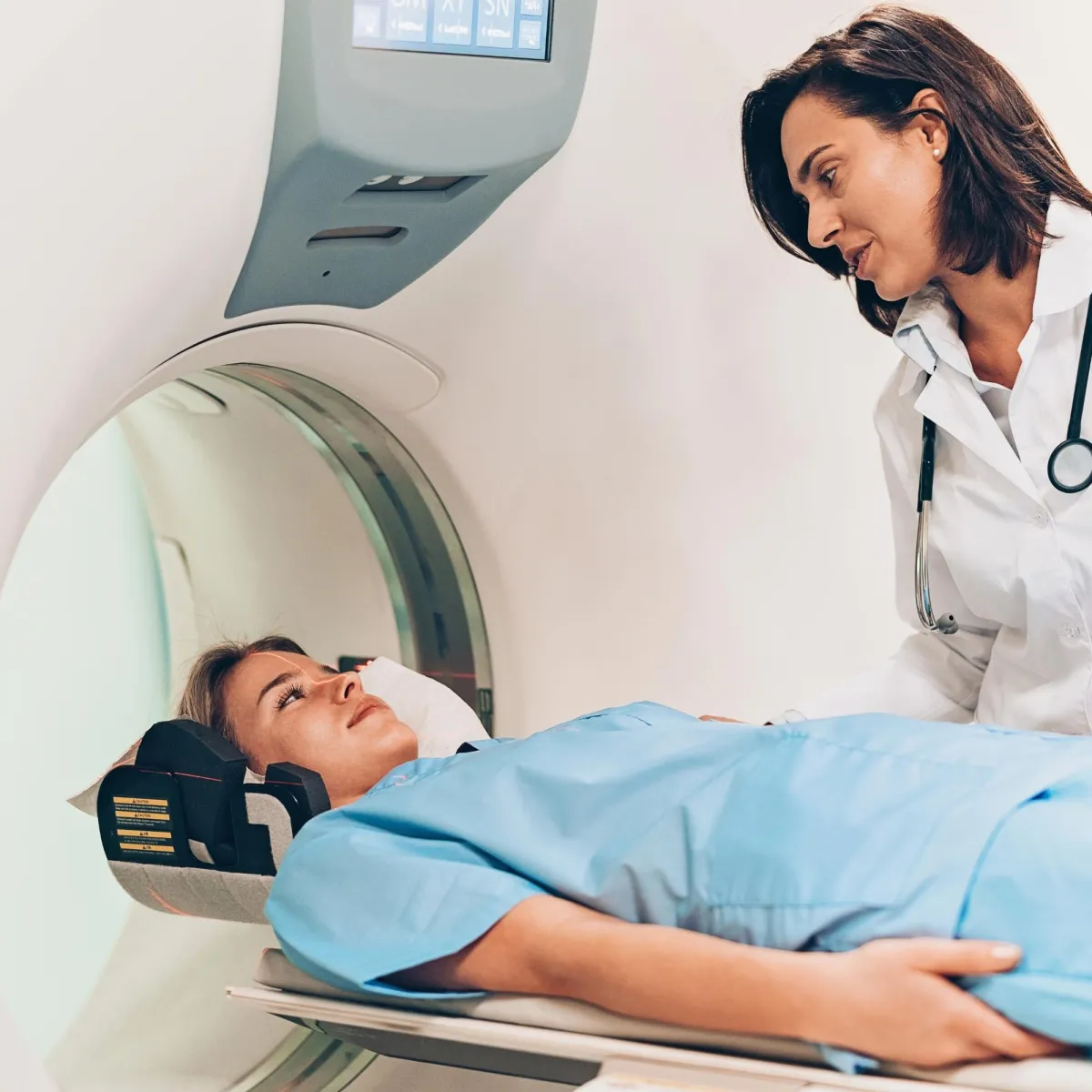X-Ray
An X-ray is a medical imaging technique that uses high-energy radiation to create detailed images of bones and tissues. During the procedure, you'll either stand or lie down while pictures are taken from different angles, often requiring you to hold still and sometimes hold your breath. The process is quick, usually taking just a few minutes. Usually, no special preparation is needed for an X-ray. However, you might need to remove jewelry, metal objects, or clothing that could interfere with the image. You will need to inform the technologist if you’re pregnant (or might be), and follow any specific instructions given by your healthcare provider.
World-Class Experts
We are the oldest and largest private radiology group in the Omaha/Council Bluffs area, offering patients world-class expertise in the areas of:
- Abdominal imaging
- Breast Imaging
- Musculoskeletal Imaging
- Neuroimaging
- Nuclear medicine/molecular medicine
- Pediatrics
- Trauma
- Vascular and interventional radiology
Reliable Results
The accuracy of your diagnosis largely hinges on three things:
1) the technology of your diagnostic machines,
2) the experience of the person performing your tests, and
3) the specialization and experience of the radiologist who reads your reports
We have you covered with our top-of-the line equipment and the most experienced radiology team in the area.
You're in good hands!
What is an X-ray?
An X-ray is a type of radiation that can pass through the body to create images of its internal structures. It's similar to light, but with much higher energy, allowing it to penetrate tissues and bones.

When you get an X-ray, a machine sends this radiation through your body and captures it on a special film or digital sensor on the other side. More dense materials, like bones, absorb more radiation and appear white on the image, while softer tissue absorbs less radiation, appearing darker. This helps doctors see and diagnose issues inside your body, such as broken bones or infections.
X-rays are often the only imaging required for diagnosis for many diseases; however, an abnormality may be noted on plain film which could require further study with more advanced imaging equipment such as CT or MRI.
X-rays involve exposure to a small amount of radiation. While the dose is low and generally considered safe, it's important to inform your doctor if you’re pregnant or might be pregnant.
During the X-ray, you'll be asked to stand or lie in specific positions to get the best images. You may need to hold still and sometimes hold your breath briefly.
The X-ray process typically takes just a few minutes.
The procedure is painless, though you may need to hold a position that feels a bit uncomfortable for a short time.
Important things to know about X-rays
During the X-ray, you'll be asked to stand or lie in specific positions to get the best images. You may need to hold still and sometimes hold your breath briefly.
The X-ray process typically takes just a few minutes.
The procedure is painless, though you may need to hold a position that feels a bit uncomfortable for a short time.
Frequently Asked Questions
Can radiation hurt me?
Our equipment at MIC is so technologically advanced that it significantly reduces radiation emission, so the amount of radiation you are exposed to during a single X-ray is relatively low. However, it's important to minimize unnecessary exposure, especially when pregnant. So, if there is a chance you are pregnant please let your technologist know.
Do I have to make an appointment?
X-rays are available on a walk-in basis. However, by calling ahead at 402-592-0711, you can ensure that all necessary paperwork and equipment are ready for your X-ray, making the process much smoother and quicker. This proactive step can significantly reduce your wait time!
How do I prepare for my X-ray?
In most cases, X-rays are quick and simple, with minimal preparation required. Just follow any specific instructions given by your healthcare provider for the best results. You may be asked to change clothes if you're wearing something that could interfere with the X-ray images. Take off any jewelry, glasses, or other metal items, as these can affect the clarity of the images. You might also need to remove other items such as belts or hairpins. Let the X-ray technologist know if you’re pregnant or could be pregnant, as this might affect the type of X-ray or additional precautions.
How to prepare for your X-ray?
In most cases, X-rays are quick and simple, with minimal preparation required. Just follow any specific instructions given by your healthcare provider for the best results. You may be asked to change into a gown or scrubs if your clothing could interfere with the X-ray images. (Any metal threads, zippers, clasps, etc. will interfere with the X-ray.) You will also need to remove all jewelry, glasses, or other metal items, as these can affect the clarity of the images. You might also need to remove other items such as belts or hairpins. We will have a locker for you to store your personal belongings during the test. If you are or could be pregnant, additional precautions will be taken.
Varicose
Veins
Pelvic
Pain
Non Healing Wounds
Plantar
Fasciitis
Uterine
Fibroids
Benign Prostatic Hyperplasia
Services



CT Scan
Minimally Invasive Therapies
Molecular Medicine



MRI
Ultrasound
Women's Imaging
M-F: 8:00am-5:00pm
Extended Hours Available
Upon Request



















